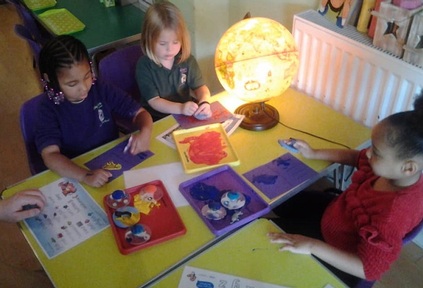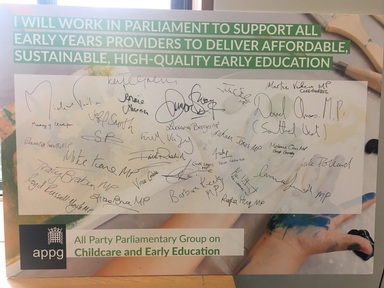Babies' first gestures reveal future language development
According to new research, babies' first gestures are a reliable indicator of how their language will develop.

Many parents believe their infant's first word is the most important milestone in learning to speak. However, research from the ESRC International Centre for Language and Communicative Development (LuCiD) suggests that simple behaviours – such as holding up objects to show or share – are just as key, and learning what they mean helps parents become effective ‘baby whisperers’.
Professor Elena Lieven, director of LuCiD at the universities of Manchester, Liverpool and Lancaster, believes understanding early behaviours gives parents the opportunity to help support their child’s later progress in communicating.
“Our research demonstrates that babies may be doing more to communicate than many of us usually assume, and at an earlier age,” she said.
“By understanding these early behaviours, parents have a great opportunity to help support their children’s later language development. Understanding babies’ gestures could also be just as important as understanding their early language.”
According to researchers, humans communicate as a way of sharing attention with others. Attention-sharing involves a person matching their focus of attention with another individual such as following their gaze or showing them an object.
Attention-sharing begins before other forms of communication, including talking. It has a direct effect on language development, but often goes undetected or overlooked by parents or caregivers.
Until now, studies have mostly focused on an infant’s use of pointing with their index finger, a form of communication which usually appears at around 10 to 12 months. However, LuCiD researchers have turned their focus to even earlier pre-linguistic behaviours and have based their research on analysing interactions between children and their caregivers.
They videoed how parents and 24 children aged 10 months communicated using a selection of toys. The aim was to identify ‘showing’ and ‘giving’ behaviours and identify the ‘micro-behaviours’ – the tiny behavioural cues – which might indicate what babies are trying to tell us before they can speak.
The children were followed until the age of 12 months and the responses of their behaviours were analysed.
Researchers found that ‘showing and giving’ behaviours are strong predictors of how often infants use pointing later on. Their studies also highlight that most parents are often puzzled by the intentions behind these behaviours, despite them being widespread.
How caregivers respond to these behaviours, in particular whether they engage in language-rich bouts of interaction, relates to the frequency of pointing behaviours as an infant develops. This demonstrates the importance of parents picking up on early gestures.
Professor Lieven added: “What we’ve found is that talking to babies about the things they’re showing an interest in helps their language development. The ability to share and direct attention is an essential basis for typical language development and others have found that it is often impaired in children on the autism spectrum.
“Our findings provide useful guidance to both researchers and caregivers in the identification of infants’ early attempts to communicate about objects with their caregivers and highlight the need for further studies of these early pre-linguistic behaviours.”
Professor Lieven and her colleagues will be sharing their research on babies’ communicative development at the ‘Art Baby–Music Baby–Language Baby’ event on 9 November as part of the ESRC’s Festival of Social Science.
The ESRC International Centre for Language and Communicative Development (LuCiD) is a five-year research collaboration which aims to understand how children learn to communicate using language.
The LuCiD team includes over 40 researchers from Lancaster University, the University of Liverpool and the University of Manchester investigating key research questions about language development. They are supported by colleagues from international partners in Europe, the US and Australia.
For more information on the research visit: www.lucid.ac.uk
Latest News Analysis
 06-Aug-19
Nursery boss says 'cultural capital has always been important, it shouldn't be new'
06-Aug-19
Nursery boss says 'cultural capital has always been important, it shouldn't be new'
 25-Jul-19
Gavin Williamson appointed education minister
25-Jul-19
Gavin Williamson appointed education minister
 17-Jul-19
Flexible Working Bill for all jobs gets MPs approval - delighting parents, disabled and carers
17-Jul-19
Flexible Working Bill for all jobs gets MPs approval - delighting parents, disabled and carers
 03-Jul-19
MPs blame government policies for nursery closures in deprived areas
03-Jul-19
MPs blame government policies for nursery closures in deprived areas
 14-May-19
Number of schools wanting to pilot Reception Baseline Assessments 'embarrassingly low'
14-May-19
Number of schools wanting to pilot Reception Baseline Assessments 'embarrassingly low'